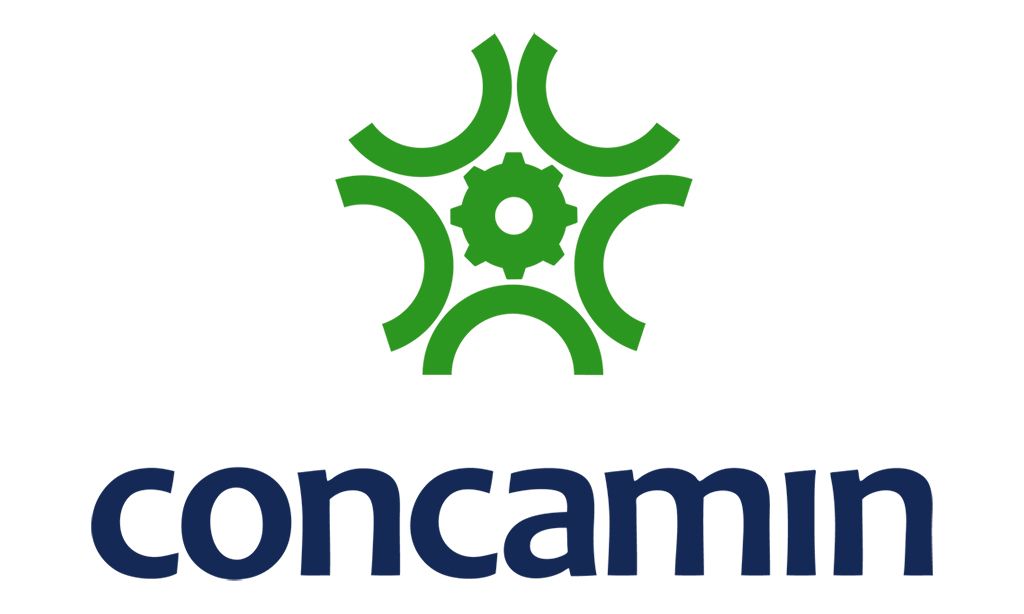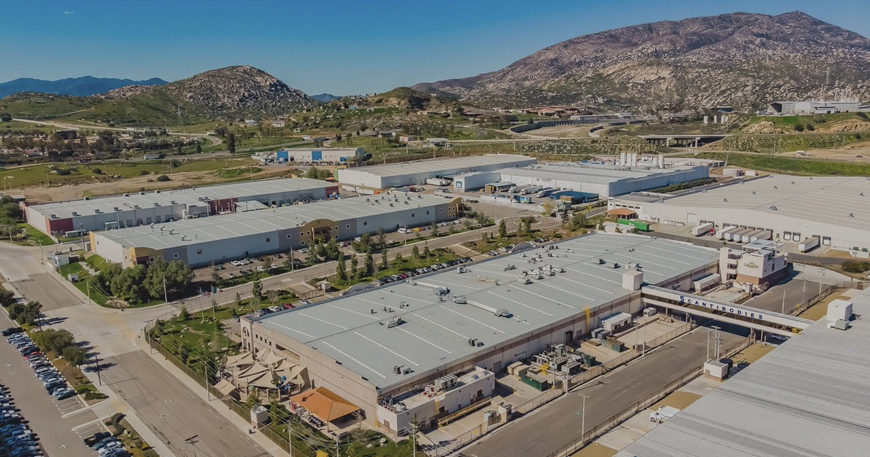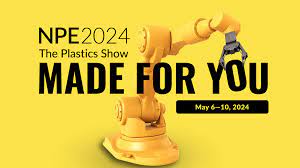THIS INTERNATIONAL ON DEMAND SUMMIT IS AN INDUSTRY… More
Clone of Los tiempos que corren....México
Covid-19 has affected everyone and did not spare the manufacturing industry. Surprisingly, however, many companies have adapted to these changing circumstances realizing that evolution is and always has been the only constant in their line of business.
Mexico, with a territorial extension of more than 1.9 million km2, is the fourteenth largest country, and is strategically positioned as a gateway to the North American, Central and South American markets. Its Federal Republic is made up of 32 states, with high concentrations of economic activities within its three main metropolitan areas.
 According to CONCAMIN (Confederation of Industrial Chambers of the United Mexican States), the Bajio-Centro Occidente region is at the forefront of Mexico's industrial development and its transition to the new era of digitalization and Industry 4.0 or as we would say here in Mexico, a transition from manufacturing to mentefattura or "mind-manufacturing".
According to CONCAMIN (Confederation of Industrial Chambers of the United Mexican States), the Bajio-Centro Occidente region is at the forefront of Mexico's industrial development and its transition to the new era of digitalization and Industry 4.0 or as we would say here in Mexico, a transition from manufacturing to mentefattura or "mind-manufacturing".
The federal government and local jurisdictions are striving to restart the country's economic growth to generate the jobs its population requires and the well-being it aspires to achieve. However, it is important to remember,
that there can be no growth without investment and no investment without good faith.
Last June, manufacturing companies were allowed to resume full operations. This occurred without major shocks to the system. Global supply chains, however, were impacted by non-homogenous restrictive measures and policies that were put in place by different countries in order to contain the spread of COVID-19. The sensitivity of global supply chains to disruptive events of such magnitude is one of the important lessons learned by the manufacturing industry in Mexico, North America, Italy and Europe. Sectors such as automotive, aerospace, pharmaceutical, electronics, textile, footwear, mining and related industries have been characterized by a high degree of global integration while their supply chains have been exposed to high-level disruptive risks.
The T-MEC trade agreement known as USMCA in the US and CUSMA in Canada, will be good for Mexico if the country learns to take advantage of the new opportunities. For Mexican industry to benefit from the agreement, the government needs to enact policies that encourage innovation, digitization of SMEs, inclusion in North American supply chains, skilled labor development and fiscal investment in these infrastructures.
The T-MEC updates and modernizes what was previously known as NAFTA, allowing the joint market to capitalize on the experiences that have been had over the last quarter century. Mexico will surely be able to take advantage of this evolution of the North American economic partnership that will allow this new tool to help drive greater industrialization of all member countries and greater integration among them.
There will be challenges.
Among them are those posed by the rapid evolution of industry within the economies of the developed world that are moving fully towards digitalization (IIOT, robotization and automation, AI), the change in their energy models that demand sustainability and environmental conservation, to mention just a few.
 According to Lorenzo D. Berho, President of the Mexican Association of Private Industrial Parks (AMPIP), "...At the beginning of this period there was a lot of confusion in the sector, with the expectation of understanding what it was (COVID-19). However, after three or four months of health crisis, we realized how resilient the manufacturing sector is". From his point of view, Lorenzo D. Berho believes that the manufacturing sector will continue to be the most important engine of the Mexican economy, so the industrial real estate sector will also continue to grow. Especially now that the economy is supported by various sectors -which is an opportunity- such as mining, energy, tourism, manufacturing and agro-industrial components. Not to mention service sectors such as logistics and e-commerce.
According to Lorenzo D. Berho, President of the Mexican Association of Private Industrial Parks (AMPIP), "...At the beginning of this period there was a lot of confusion in the sector, with the expectation of understanding what it was (COVID-19). However, after three or four months of health crisis, we realized how resilient the manufacturing sector is". From his point of view, Lorenzo D. Berho believes that the manufacturing sector will continue to be the most important engine of the Mexican economy, so the industrial real estate sector will also continue to grow. Especially now that the economy is supported by various sectors -which is an opportunity- such as mining, energy, tourism, manufacturing and agro-industrial components. Not to mention service sectors such as logistics and e-commerce.
Finally, Berho emphasizes that "in the area of goods production our country has done an excellent job in recent years, but it is perhaps at this moment when the best opportunity presents itself for this sector to be the most relevant in Mexico's future. Not only in the short term, but also in the medium and long term. It is up to us to take advantage of this opportunity.
In short, to use the famous song, The Times They Are Changing, Mexico and its economy are definitely well positioned for a better and more robust future.

Mexico, with a territorial extension of more than 1.9 million km2, is the fourteenth largest country, and is strategically positioned as a gateway to the North American, Central and South American markets. Its Federal Republic is made up of 32 states, with high concentrations of economic activities within its three main metropolitan areas.
 According to CONCAMIN (Confederation of Industrial Chambers of the United Mexican States), the Bajio-Centro Occidente region is at the forefront of Mexico's industrial development and its transition to the new era of digitalization and Industry 4.0 or as we would say here in Mexico, a transition from manufacturing to mentefattura or "mind-manufacturing".
According to CONCAMIN (Confederation of Industrial Chambers of the United Mexican States), the Bajio-Centro Occidente region is at the forefront of Mexico's industrial development and its transition to the new era of digitalization and Industry 4.0 or as we would say here in Mexico, a transition from manufacturing to mentefattura or "mind-manufacturing". The federal government and local jurisdictions are striving to restart the country's economic growth to generate the jobs its population requires and the well-being it aspires to achieve. However, it is important to remember,
that there can be no growth without investment and no investment without good faith.
Last June, manufacturing companies were allowed to resume full operations. This occurred without major shocks to the system. Global supply chains, however, were impacted by non-homogenous restrictive measures and policies that were put in place by different countries in order to contain the spread of COVID-19. The sensitivity of global supply chains to disruptive events of such magnitude is one of the important lessons learned by the manufacturing industry in Mexico, North America, Italy and Europe. Sectors such as automotive, aerospace, pharmaceutical, electronics, textile, footwear, mining and related industries have been characterized by a high degree of global integration while their supply chains have been exposed to high-level disruptive risks.
The T-MEC trade agreement known as USMCA in the US and CUSMA in Canada, will be good for Mexico if the country learns to take advantage of the new opportunities. For Mexican industry to benefit from the agreement, the government needs to enact policies that encourage innovation, digitization of SMEs, inclusion in North American supply chains, skilled labor development and fiscal investment in these infrastructures.
The T-MEC updates and modernizes what was previously known as NAFTA, allowing the joint market to capitalize on the experiences that have been had over the last quarter century. Mexico will surely be able to take advantage of this evolution of the North American economic partnership that will allow this new tool to help drive greater industrialization of all member countries and greater integration among them.
There will be challenges.
Among them are those posed by the rapid evolution of industry within the economies of the developed world that are moving fully towards digitalization (IIOT, robotization and automation, AI), the change in their energy models that demand sustainability and environmental conservation, to mention just a few.
 According to Lorenzo D. Berho, President of the Mexican Association of Private Industrial Parks (AMPIP), "...At the beginning of this period there was a lot of confusion in the sector, with the expectation of understanding what it was (COVID-19). However, after three or four months of health crisis, we realized how resilient the manufacturing sector is". From his point of view, Lorenzo D. Berho believes that the manufacturing sector will continue to be the most important engine of the Mexican economy, so the industrial real estate sector will also continue to grow. Especially now that the economy is supported by various sectors -which is an opportunity- such as mining, energy, tourism, manufacturing and agro-industrial components. Not to mention service sectors such as logistics and e-commerce.
According to Lorenzo D. Berho, President of the Mexican Association of Private Industrial Parks (AMPIP), "...At the beginning of this period there was a lot of confusion in the sector, with the expectation of understanding what it was (COVID-19). However, after three or four months of health crisis, we realized how resilient the manufacturing sector is". From his point of view, Lorenzo D. Berho believes that the manufacturing sector will continue to be the most important engine of the Mexican economy, so the industrial real estate sector will also continue to grow. Especially now that the economy is supported by various sectors -which is an opportunity- such as mining, energy, tourism, manufacturing and agro-industrial components. Not to mention service sectors such as logistics and e-commerce.Finally, Berho emphasizes that "in the area of goods production our country has done an excellent job in recent years, but it is perhaps at this moment when the best opportunity presents itself for this sector to be the most relevant in Mexico's future. Not only in the short term, but also in the medium and long term. It is up to us to take advantage of this opportunity.
In short, to use the famous song, The Times They Are Changing, Mexico and its economy are definitely well positioned for a better and more robust future.

Related Articles:
Recent News
POSTED ON

























